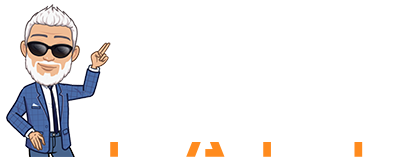When we talk about blockchain technology, we often think of cryptocurrencies like Bitcoin or Ethereum. But blockchain is much more than the foundation of a digital currency. Basically, it is a decentralized database or "book" system that stores data organized into blocks, which are then connected in a chain. This structure ensures data transparency, immutability and security.
In the field of web hosting, the application of blockchain technology opens up new opportunities. For example, you can improve security protocols, increase the transparency of data management, and make resource management more efficient. In addition, decentralized hosting services can reduce the risk of website downtime and speed up the delivery of content worldwide. These potential benefits can bring significant changes to the web hosting industry, especially in terms of security, reliability and performance.
Blockchain in Data Security
In the digital world, data security is critical. Blockchain technology, which is best known in the context of cryptocurrencies, offers revolutionary possibilities for strengthening the data security of web hosting.
Decentralization of data storage: In traditional web hosting models, data is located on centralized servers, which means potential points of failure. In a centralized system, if a server is damaged or attacked, data can become vulnerable. Blockchain technology, on the other hand, relies on decentralized storage, where data is shared and stored at many points in the network. This approach significantly reduces the risk of central points of failure, because if one piece of data is lost or manipulated, the information in the other blocks remains unchanged and can be recovered.
Protection against data manipulation: One of the basic characteristics of blockchain is the immutability of data. When a transaction is entered into a block and added to the chain, the information is sealed using cryptographic methods, making any subsequent manipulation attempts obvious and detectable. This ensures that the originality and integrity of the data can be maintained at all times, reducing the possibility of data manipulation and unauthorized access.
These technologies are not just theoretical possibilities. There are already blockchain-based web hosting solutions that take advantage of these benefits. For example, decentralized storage networks Storj and Sia allow users to store data on a global distributed peer-to-peer network, where pieces of data are encrypted and distributed across different machines in the network.
These innovations not only increase security, but also improve the cost-effectiveness and flexibility of web hosting, allowing users to pay only for the hosting they need, without relying on expensive, centralized data centers.
Transparency and Traceability
Transparency and traceability are essential elements of a reliable digital infrastructure, and blockchain technology offers revolutionary opportunities for web hosting services in this area as well.
Traceability of transactions: One of the outstanding features of blockchain is that all transactions are public and traceable on the network. This means that in the case of web hosting services, every single data movement, update or any other activity can be tracked and controlled, thereby increasing the transparency of transactions. This transparency can be key to gaining the trust of customers, as it allows them to see and control how their data is handled. In addition, auditing processes are also simplified, as blockchain technology automatically records all details of transactions, so auditors can easily access and verify the data.
Use of Smart Contracts: Smart contracts are also a significant step forward in the field of web hosting. These automated contracts run on the blockchain and are only executed when specified conditions are met. This allows web hosting providers to automatically manage service level agreement (SLA) compliance. For example, if a service does not reach the guaranteed availability, the smart contract can automatically activate a compensation for the customer. This not only improves the quality of customer service, but also increases the reliability and transparency of services.
The use of these innovations can reshape the web hosting industry, offering a system that is not only more secure and reliable, but also fully traceable and transparent to customers.
Efficiency and Scalability
Blockchain technology can not only improve security and transparency in the web hosting industry, but also opens up new opportunities in terms of efficiency and scalability. These features are crucial in today's fast-changing digital world, where websites must be able to perform stably even with high traffic.
Resource management with blockchain technology: The blockchain enables the creation of a decentralized, distributed resource management system, where computing capacity and storage are not shared at a single point, but among many participants in the network. This distributed approach can bring significant efficiency gains as it allows web hosting providers to provide resources exactly as needed, reducing redundant capacity and optimizing resource usage. In addition, blockchain-based systems can automatically adapt to changing needs, dynamically redistributing resources within the network.
Decentralized networks: Decentralization of content serving is another important aspect of using blockchain technology in web hosting. Decentralized Content Server Networks (CDNs) can help reduce web page load times by serving content from multiple geographically dispersed servers, closer to the end-user. This not only results in faster load times, but also reduces the risk of downtime, as if one server goes down due to an error, the system can quickly switch to another, so content remains available.
Blockchain-based web hosting solutions are therefore not only innovative, but also extremely flexible and scalable, able to adapt to dynamically changing web needs. These solutions can be particularly beneficial for websites experiencing sudden traffic growth or targeting a global audience where fast and reliable delivery of content is critical.
Increase Security
In the field of web hosting, security is always a priority. Innovations offered by blockchain technology can significantly increase security measures, especially in the field of DNS queries and SSL/TLS certificates.
DNS security with blockchain technology: The Domain Name System (DNS) acts as the Internet's address book, converting website names to IP addresses. Unfortunately, this system is vulnerable to DNS spoofing or DNS cache poisoning attacks, where attackers manipulate DNS responses to redirect users to malicious websites. The use of blockchain technology in the DNS system can significantly improve the security of queries, thus reducing the attack surface. A decentralized, blockchain-based DNS system, where DNS records are stored on a blockchain, makes it nearly impossible to manipulate data, ensuring that users are always directed to the correct IP address.
Certificates and authentication: SSL/TLS certificates play a fundamental role in the security of Internet communication, enabling the encrypted transfer of data between the user and the website. Man-in-the-middle (MitM) attacks, where attackers gain unauthorized access to communications, are a serious threat. With the deployment of blockchain technology, the management of certificates can become more secure. By storing certificates and credentials on a blockchain where all transactions are traceable and immutable, MitM attacks can be prevented as the authenticity of communication channels can be continuously checked.
These blockchain-based solutions are not just theoretical possibilities; many projects and organizations are already working to make these technologies a reality. The application of blockchain in the management of DNS security and SSL/TLS certificates can revolutionize the security infrastructure of web hosting, providing users with a safer and more reliable Internet environment.
Challenges and Limitations
The integration of blockchain technology into web hosting services offers promising opportunities, but it is not without challenges and limitations. These challenges can be technological, infrastructural, and economic, and must be carefully considered when developing and implementing blockchain-based solutions.
Technological and infrastructural challenges: One of the main limitations of blockchain technology is the issue of scalability. Currently, the most widely used blockchains, such as Bitcoin and Ethereum, have limited transaction capacity, which can delay transaction processing and increase costs. This can be particularly problematic for the web hosting sector, where fast and efficient data management is key. In addition, the integration of blockchain technology into the existing web hosting infrastructure may present technical challenges, the solution of which may require significant expertise and resources.
Scalability and costs: The economic effects of blockchain applications are also a significant challenge. Although decentralized data storage and automated contracts can reduce operational costs, maintaining blockchain networks and processing large amounts of data can be costly. Energy-saving blockchain solutions such as proof-of-stake algorithms can mitigate these costs, but the overall economic impact is still variable and sector-specific.
Despite these challenges and limitations of the application of blockchain technology, continuous research and development opens up new opportunities to make the technology more efficient and apply it to the web hosting industry. As the technology matures and industry players increasingly understand its potential and limitations, it is expected that the scalability of blockchain technology will improve, costs will decrease, and the efficiency of integration will increase.
Conclusions and Future Prospects
The application of blockchain technology in the field of web hosting undoubtedly has exciting possibilities that can significantly transform the industry in the long term. As the technology evolves and more and more companies begin to integrate blockchain solutions, it is expected that there will be significant changes in security, transparency, efficiency and user experience field.
Expected directions of future development and integration of blockchain technology: The next one Decentralized web hosting is expected to grow in the coming years number of services that use blockchain technology to store and manage data. At the same time, it is expected that smart contracts will be increasingly used in web hosting services, automating the management of contracts and improving compliance with service levels. In addition, more and more blockchain-based solutions will appear in the management of DNS security and SSL/TLS certificates, further strengthening the security of web communication.
How blockchain can change web hosting services in the long term: In the long term, blockchain may be able to completely transform web hosting services, especially through decentralization, increased security and data immutability. Users can gain more control over their data, and services can become more reliable and transparent. The growth of decentralized services can reduce central points of failure, thus minimizing downtime and improving website availability. The application of blockchain can also enable the development of new business models, where users can directly participate in the maintenance of the web hosting infrastructure and receive rewards for their contribution.
Overall, the integration of blockchain technology in the web hosting industry can bring significant benefits, but it also raises many challenges. As technology evolves and is better understood and adopted by industry players, it is expected that new solutions will emerge that will facilitate further innovation and development of web hosting services.













